Leaders forced to water down climate targets
India, Brazil, China and Russia appear to have scuppered the chances of major progress at this week’s Glasgow climate change conference.
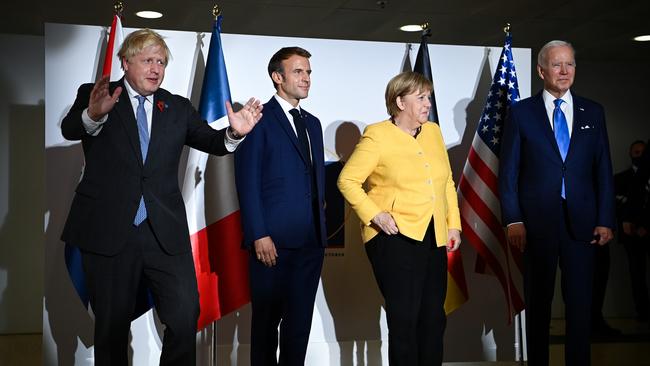
India, Brazil, China and Russia appear to have scuppered the chances of major progress at this week’s Glasgow climate change conference, after they forced Boris Johnson, Joe Biden and Emmanuel Macron to water down emissions reduction pledges at the G20 summit in Rome.
Leaders of developing and resource-heavy nations have pushed back against the 2050 net-zero emissions target, a UK ambition to phase out coal-fired power generation by 2030 and the US-led plan to implement a global methane pledge in the lead-up to the COP26 summit.
Indian Prime Minister Narendra Modi ruled out adopting a net-zero target while Chinese President Xi Jinping, Russian President Vladimir Putin and Brazilian President Jair Bolsonaro – representing three of the biggest emitters and fossil-fuel producers – have all snubbed COP26.
Before flying to Glasgow on Sunday night, Scott Morrison said he believed progress would still be made at COP26 despite the setbacks at the G20 summit.
The Prime Minister said: “The destination, I think, is understood and agreed. The world will move to a new-energy economy. It will move to a decarbonised net-zero economy. And the pace of that and the way that journey … is travelled by countries will be different. In different countries they’ve got different challenges and they will find their different ways to that same destination.
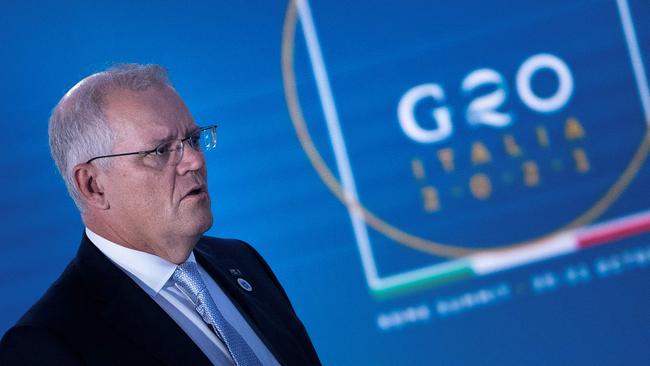
“And to think that aspiring to that goal means that every single country has to get there the same way. I don’t think that’s realistic. And frankly, I think it’s a bit naive.”
The British Prime Minister said on Sunday night that while reasonable progress had been achieved at the G20, “there is a huge way still to go”.
“If Glasgow fails, then the whole thing fails,” Mr Johnson said. “Right now the Paris Agreement, and the hope that came with it, is just a piece of paper. We need to fill that piece of paper to populate it with real progress.”
The US President, facing increasing domestic pressure over his climate change agenda, said it was “disappointing” Mr Xi and Mr Putin had not attended the G20 and COP26 summits in-person. “(They) basically didn’t show up in terms of any commitments to deal with climate change,” he said.
“And there’s a reason why people should be disappointed in that. I found it disappointing myself.
“The proof of the pudding will be in the eating. I think you’re going to see we’ve made significant progress and more has to be done. But it’s going to require us to continue to focus on what China is not doing, what Russia is not doing, and what Saudi Arabia is not doing.”
Mr Morrison, who arrived in Glasgow on Sunday night (Monday AEDT), will join more than 100 leaders at a two-day summit in setting the COP26 agenda and delivering national statements outlining their climate change policies and targets.
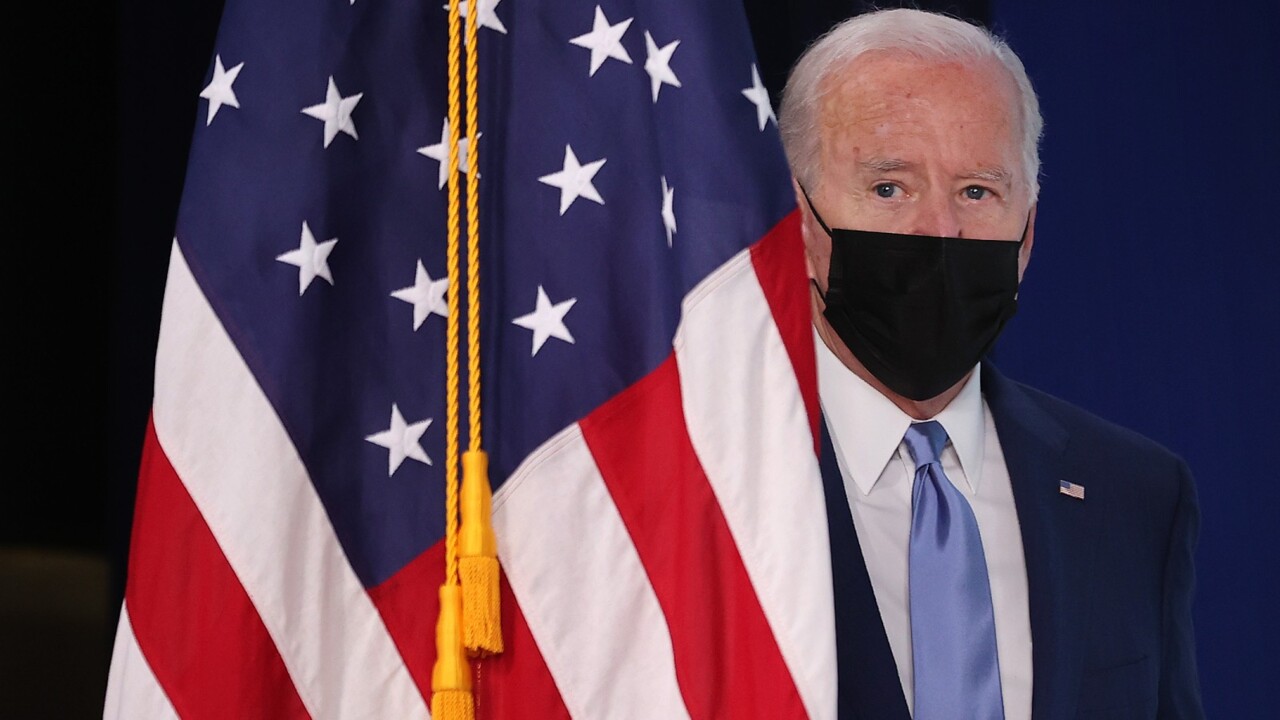
He was due to use his speech overnight to explain Australia’s plan to reach net zero by 2050 and updated emissions projections showing the country was on track to beat its Paris commitment.
Before travelling to Glasgow, Mr Morrison and Energy Minister Angus Taylor ruled out Australia supporting higher methane emissions-reduction targets or agreeing to a phasing out of coal-fired power generation by the end of the decade.
G20 countries including India, Australia, Russia, China, Brazil, Saudi Arabia, Indonesia and South Africa were understood to have reservations about some of the climate agenda being pushed by the US, Britain and the European Union.
More than 20,000 people have assembled in the Scottish city for the COP26 summit, where Mr Johnson had hoped to usher in a new era of global co-operation on emissions reduction and climate change.
Mr Morrison was due to hold a roundtable with South Pacific leaders overnight, his first opportunity to hold in-person talks with island leaders since the pandemic struck. He was also due to meet Israel Prime Minister Naftali Bennett and Vietnam Prime Minister Pham Minh Chinh – both relatively new leaders in key strategic countries – after visiting the BAE Systems shipyard to inspect British Hunter-class frigates, the same model that will be built in Adelaide.
As expected, G20 leaders broadly agreed meaningful action was required to limit global warming to 1.5C above pre-industrial levels, “also as a means to enable the achievement of the 2030 agenda”. But a standoff pitting the US, Britain, France and the EU against China, Russia, Brazil and India led to a substantial rewriting of the G20 communique’s climate change section.
The final communique, released late on Sunday, revealed a softening in language around targets for net-zero emissions by 2050, with carbon-neutrality goals watered down to say “by or around mid-century”.
Despite calls to end coal-fired power generation by 2030, G20 leaders could only agree that countries “commit to phasing out investment in new unabated coal power generation capacity as soon as possible”. A vague reference was included on ending international public finance for new coal generation abroad by the end of the year.
Mr Biden’s Global Methane Pledge, which he will officially launch at COP26, also fell flat with G20 leaders. It said the world’s leading economies would “acknowledge methane emissions represent a significant contribution to climate change, and recognise, according to national circumstances, that its reduction can be one of the quickest, most feasible and most cost-effective ways to limit climate change and its impacts”.
Russian Foreign Minister Sergey Lavrov, who attended the G20 summit, said: “Why do you believe 2050 is some magic figure. If it is an ambition of the European Union, it is the right of other countries also to have ambitions … No one has proven to us or anybody else that 2050 is something everyone must subscribe to.”
In Australia, Anthony Albanese said Mr Morrison would be exposed at Glasgow for a lack of policy on his own net-zero target by 2050. “You can’t have an Australian Prime Minister just saying, ‘It’s the vibe’, when the rest of the world wants to see concrete steps towards net zero by 2050,” the Opposition Leader said.


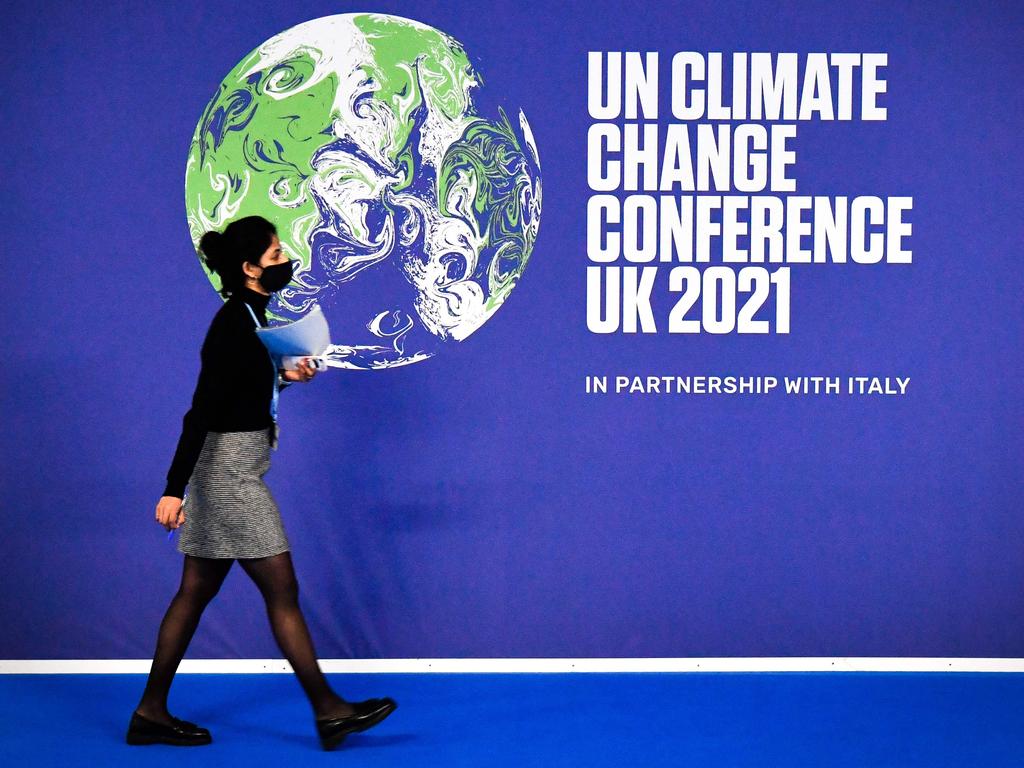
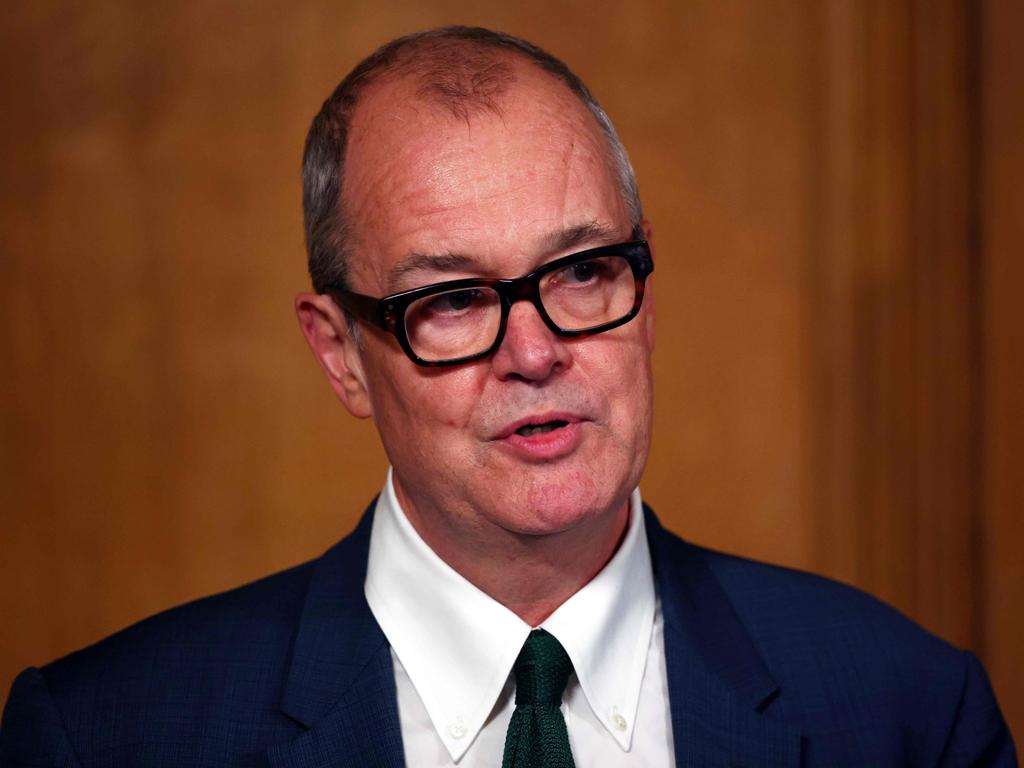




To join the conversation, please log in. Don't have an account? Register
Join the conversation, you are commenting as Logout